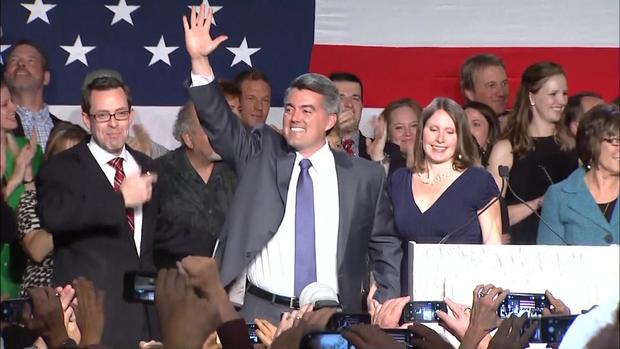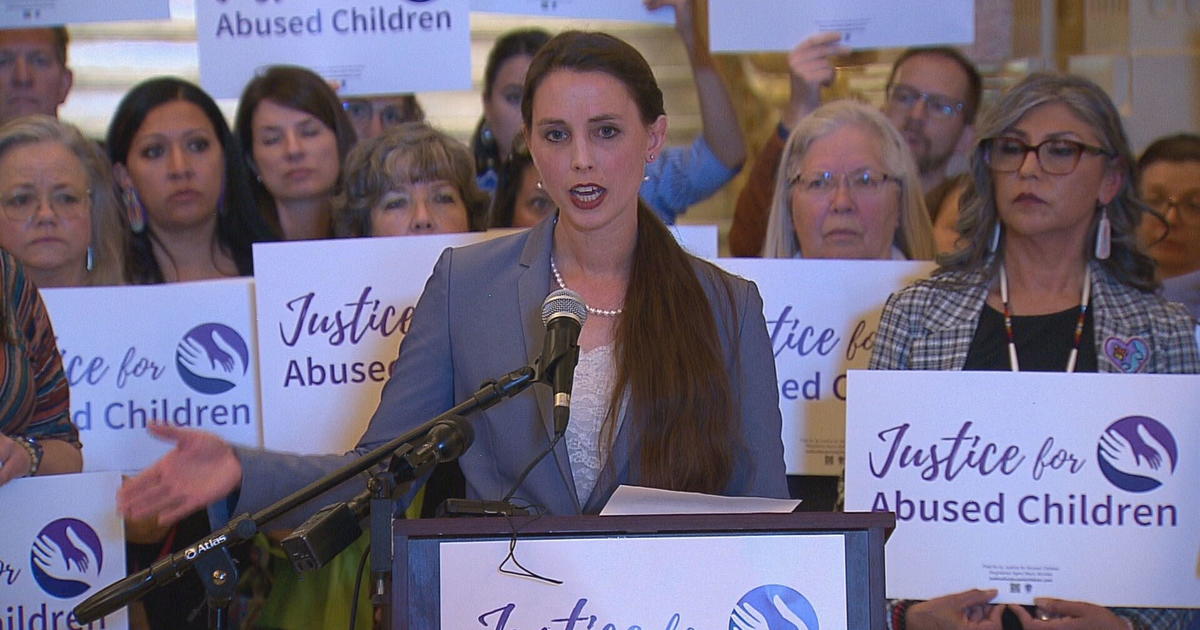Cory Gardner Defeats Mark Udall In U.S. Senate Race
DENVER (CBS4) - Republican Cory Gardner defeated Mark Udall on Tuesday, unseating the incumbent Democratic senator and helping the GOP reach its goal of capturing the U.S. Senate.
"Tonight, we shook up the Senate. You shook up the Senate," Gardner told supporters during his victory speech. "As Republicans in Colorado, we've gotten used to the saying, 'Wait until the next election.' Well, I got news for you: That next election, it finally happened."
At 10:15 p.m. and with 82 percent of precincts reporting, Gardner led with 51 percent of the vote to Udall's 44 percent.
The race, one of the most expensive in the nation at nearly $70 million, was considered vital to the Republican Party's attempt to wrest control of the Senate from Democrats. The GOP needed to net six Senate seats to win the chamber, and with Gardner's victory, CBS News estimated that Republicans will take control.
"I really want to thank the people of Colorado for the great privilege of loaning me their power to serve as a senator from Colorado for the last six years," Udall said in his concession speech. "With that same spirit I do wish Congressman Gardner the best as he prepares to represent our state in the U.S. Senate."
In defending his seat, Udall relentlessly criticized Gardner for his positions on women's issues, including abortion, birth control and personhood. But those attacks never seemed to resonate with voters, especially the coveted female vote in swing counties like Jefferson and Arapahoe.
CBS4 Political Specialist Shaun Boyd said that the Republican wave in this election could reflect frustration with President Obama.
Gardner refused to take the bait on the social issues and instead hammered Udall for voting with President Barack Obama nearly 100 percent of the time.
It's been 36 years since an incumbent senator lost in Colorado.
Gardner often played the charismatic, smiling candidate to Udall's fatigued campaign that concentrated heavily on one issue.
The race was considered one of the closest Senate races in the nation, and Udall led in polling throughout much of the summer until mid-September when Gardner surged in polls, while Udall's support remained flat.
Gardner, who represented a conservative fourth U.S. House district on the state's eastern plains, courted the political center to win. He highlighted that strategy in his acceptance speech.
"The people of Colorado, voters around this state had their voices heard. They are not red. They are not blue. But they are crystal clear. Crystal clear in their message to Washington, D.C.,: Get your job done and get the heck of out of the way," he said.
During the campaign, Gardner appealed to Coloradans who felt they hadn't caught up during the recovery from the recession, and he repeatedly said that median household income in the state had dropped by $4,000 since in 2008.
He also walked a fine balance on climate change: He acknowledged that humans caused some climate change, but he wouldn't say how much, and he said the economy shouldn't be sacrificed for the environment.
On illegal immigration, he said the country needed all-of-the-above reform with increased border security, guest worker programs and e-verify systems.
Boyd also said that despite campaign promises, Gardner will have to answer to voters who put their faith in him.
Udall, meanwhile, talked about his record in helping Colorado during last year's historic floods. He also touted gains the state had made against pollution. But his advertising strategy was laser-focused on abortion and birth control, and that didn't work.
Gardner was elected to the House in 2009. Udall was elected to the U.S. Senate in 2008 after serving the state's second congressional district from 1999 to 2009.




